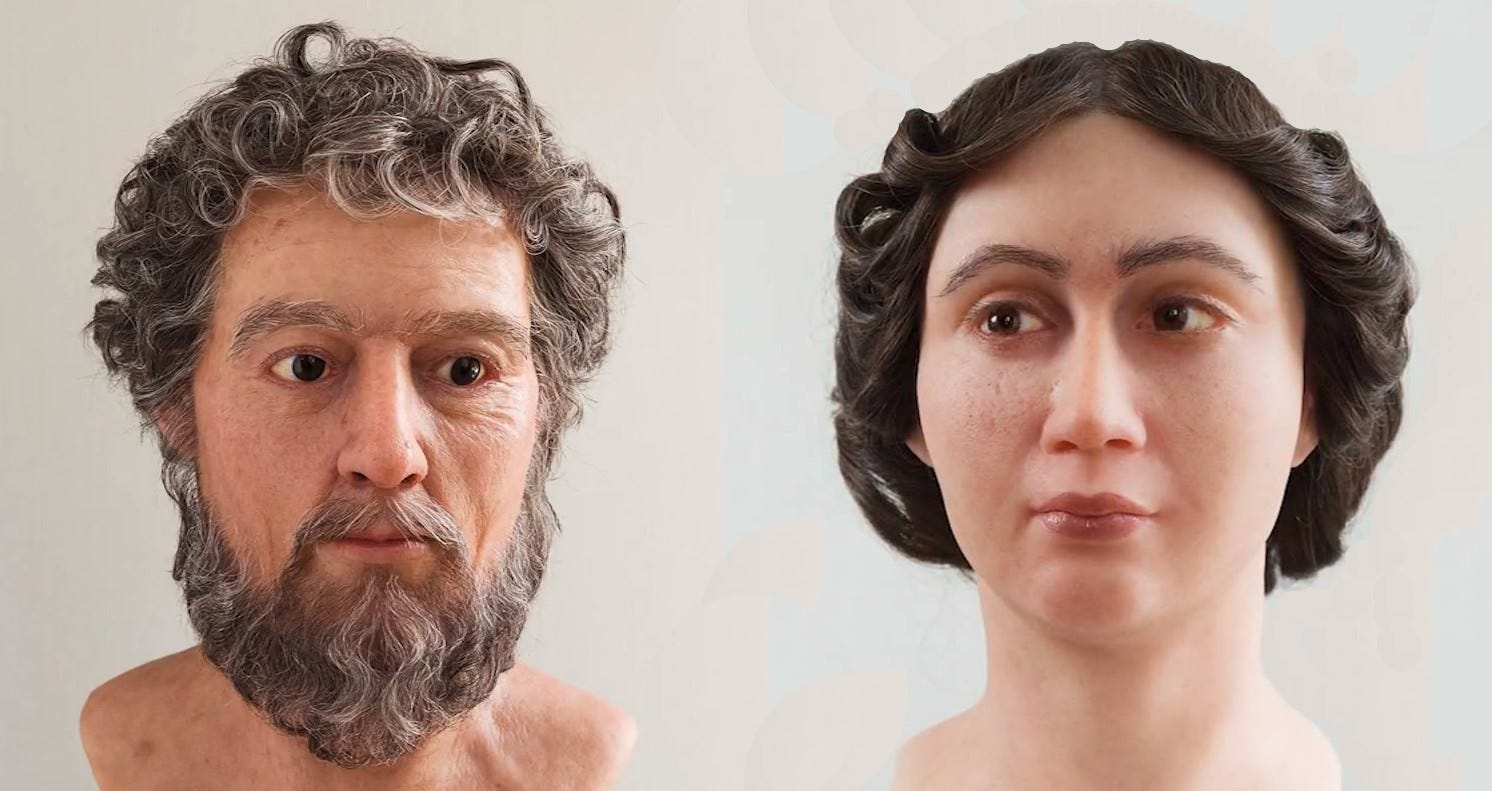Жена философа на троне Марка Аврелия изменяла ему с гладиатором. В результате этого адюльтера закончился Золотой Век Рима
Опубликовано 2021-02-27 13:00
Прилагаемая статья, опубликованная в солидном научно-историческом журнале, проливает неожиданный свет на конец династии Антонинов. Во время которой Рим процветал, как никогда ранее или позднее.
Антонины назначали своими наследниками усыновленных ими мужчин, зарекомендовавших себя наилучшими для правления. Это правило было впервые нарушено самым философским философом. Сын которого Коммод, более сотни раз участвовавший в гладиаторских поединках, положил конец процветанию Рима.
Если бы Философ на Троне был меньше философом, а больше, чем стоицизму, следовал бы заповеди первого из Цезарей Юлия "Жена Цезаря должна быть выше подозрений" - история человечества пошла бы по иному пути.
В том случае, если Коммод ко всем своим недостаткам был еще и незаконнорожденным, появившись на свет в результате адюльтера жены, являвшейся дочерью предыдущего императора, с гладиатором, проливает неожиданный свет на историю мира. Событие, достойное романов и сериалов.
Marcus Aurelius’s Wife Cheated on Him With A Gladiator
Aurelius tried to heal his wife’s lust in the most unusual way

Marcus Aurelius is famous today as a Stoic philosopher. History remembers him also as one of the Five Good Roman Emperors. To a broader audience, he became known through the Hollywood movie — Gladiator.
In the movie, Aurelius had a son Commodus who eventually fights in Colosseum as a gladiator. Also, in reality, Commodus performed as a gladiator.
The Romans gossiped Commodus was not Aurelius’s biological son. They believed his true father was the gladiator who had been the lover of his mother, Faustina the Younger. How else they could explain Commodus’s obsession with the gladiator fights?
The affair with a gladiator
Faustina the Younger (130–175) was a daughter of Emperor Antoninus Pius (ruled 138–161). She was also a cousin and wife of Pius’s successor, Emperor Marcus Aurelius (ruled 161–180).
The Roman gossipers claimed Faustina cheated on her husband all the time. Supposedly, she had affairs with senators, soldiers, sailors, and gladiators.
In Roman times, the gladiators were sex symbols. The Romans believed the sweat and blood of the gladiators were an aphrodisiac. The rich and influential Roman women hired the gladiators as their ‘bodyguards’. Of course, they desired for their bodies to be ‘closely guarded’ by these slave-warriors.
Faustina was so infatuated with the particular gladiator that she actually fell ill. She admitted the affair to her loving husband, Marcus Aurelius. Aurelius consulted soothsayers, who proposed the most unusual solution.
Aurelius summoned Faustina and the gladiator in his room and asked them to have sex. While they were having sex, Aurelius’s soldiers executed the poor guy. Faustina had to bathe in the gladiator’s blood. After the gladiator was dead, Aurelius and Faustina had sex.
The Romans believed the gladiator’s blood was a powerful aphrodisiac. By bathing in the gladiator’s blood, Faustina would renew her passion for Aurelius.
Aurelius turned a blind eye to Faustina’s transgressions
After the affair with the gladiator, Faustina continued cheating on her husband.
Aurelius’s advisors told him all the details of her raunchy affairs. They hoped Aurelius would kill her or at least request the divorce. But Aurelius stoically responded:
“If I send away my wife, I must also repudiate her dowry.”
Since Faustina was the daughter of Aurelius’s predecessor Emperor Antoninus Pius, her dowry was the Roman Empire. So Aurelius did nothing about his wife’s transgressions. He even elevated Faustina’s lovers to powerful positions within his government.
Aurelius and Faustina remained close to each other for the rest of theirs lives. Aurelius proclaimed his love for Faustina also in his personal diary, the famous Meditations. After Faustina died in 175, he named a city after her, deified her, and mourned her till his own death in 180.
Aurelius also issued coins with her effigy. The Roman women believed the coins depicting Faustina the Younger were a lucky charm. For hundreds of years, women would carry jewelry with these coins embedded in them.
Conclusion
Marcus Aurelius is remembered by history as a great emperor who faced the devastating consequences of the Antonine Plague. As a general, he defeated the Germanic tribes in the Marcomannic Wars.
As a person, he embodied stoicism. His personal diaries titled Meditations are a source of inspiration still today.
However, Aurelius’s many flaws are a reminder that he was only a human. One of these flaws was turning a blind eye to the wrongdoings of those near him, such as Faustina’s infidelities. Also, his choice of Commodus as an heir would lead to the end of the famous Pax Romana (Latin for ‘Roman Peace’).
Читайте также:
Средняя продолжительность жизни мужчин составляла 47 лет. Топливо для автомобилей продавалось только в аптеках.
Все мы прекрасно знаем, что нынешние темнокожие американцы — потомки рабов, когда-то привезенных из Африки. Но рабами становились не только африканские негры. Ими могли стать и белые. Причем ценились они куда дешевле. Откуда взялись белые рабы?
Клятва Ганнибала – знак исторической обреченности. Силы, верные этой клятве обрекают себя на крах дела всей жизни, а свои народы на катастрофу и стремительное схождение с исторической арены.
|
Оставлять комментарии могут только зарегистрированные пользователи. Войдите в систему используя свою учетную запись на сайте: |
||
 Discovery or Joke?
Discovery or Joke?